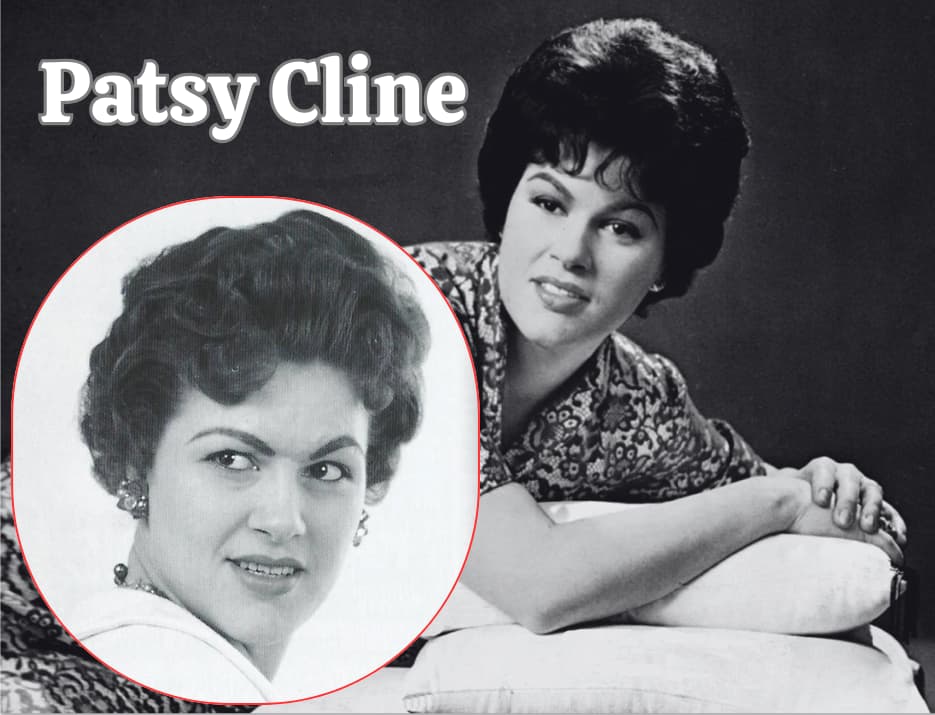
The Enduring Lament of a Heart Divided
Ah, the jukebox glow, the scent of stale beer and cheap perfume, and that hush that would fall over the room when a certain voice drifted from the speakers. For many of us who lived through those simpler, yet often more emotionally complex, times, there are songs that aren’t just melodies and lyrics; they are time capsules, carrying the weight of shared experiences and private heartaches. And few encapsulate that profound sense of yearning and quiet desperation quite like Patsy Cline’s “Why Can’t He Be You.”
Released in 1962 as the B-side to her hit single “When I Get Through With You (You’ll Love Me Too),” “Why Can’t He Be You” might have been relegated to the background for some, but for true connoisseurs of heartache and the sheer, unadulterated beauty of Patsy Cline‘s voice, it quickly became a standout. While it didn’t achieve the same chart-topping success as her colossal hits like “Crazy” or “I Fall to Pieces” – songs that soared into the Top 10 of the Billboard Hot Country Singles chart – “Why Can’t He Be You” carved its own indelible niche. Its more subtle chart performance, often hovering just outside the mainstream pop charts, allowed it to become a cherished gem, passed along by word of mouth among those who truly understood its aching sentiment. It was the kind of song you’d hear on late-night radio, resonating deeply in the quiet hours when introspection was at its most acute.
The story behind this particular lament is as poignant as the song itself, and it speaks volumes about the human heart’s capacity for complex emotions. Written by the immensely talented country songwriter Hank Cochran, who also penned “I Fall to Pieces,” “Why Can’t He Be You” taps into a universal truth: the struggle of being with one person while your heart, inexplicably, longs for another. It’s a confession, a plea, and a profound expression of emotional conflict. The song details the protagonist’s attempts to move on, to embrace a new love who, by all objective measures, is good, kind, and deserving. Yet, despite these admirable qualities, the memory of a past, perhaps more passionate, love stubbornly refuses to fade. “He’s all that a man should be, yes, he is / He’s everything I’d ever need, yes, he is,” Cline croons, her voice a velvet caress of sorrow, “But when he holds me close at night / It doesn’t feel quite right / Why can’t he be you?”
This isn’t just a simple love triangle; it’s a profound exploration of emotional resonance and the stubborn refusal of the heart to be dictated by logic. The meaning of “Why Can’t He Be You” lies in its raw honesty about the lingering power of a past affection, even when faced with the undeniable goodness of a present one. It’s about the phantom limb of a lost love, the way a ghost can inhabit the spaces where joy and connection are supposed to reside. For anyone who has ever found themselves in a relationship that felt “good on paper” but lacked that indescribable spark, this song is a mirror. It speaks to the quiet desperation of trying to force a connection that just isn’t there, all while the specter of a former love dances in the mind’s eye.
Listening to Patsy Cline deliver these lines is an experience in itself. Her voice, a rich contralto with an unparalleled ability to convey deep emotion without ever resorting to histrionics, elevates the song from a simple country ballad to a timeless piece of art. There’s a world-weariness in her delivery, a subtle crack in the perfect notes that hints at the profound sadness she’s expressing. It’s not just singing; it’s feeling, embodying every ounce of the protagonist’s struggle. This song, like many of her masterpieces, came from a period of intense personal and professional growth for Cline, released just a year before her tragic and untimely death. Her ability to infuse such raw vulnerability into every syllable is part of her enduring legacy, making songs like “Why Can’t He Be You” resonate with new generations even today. It reminds us that sometimes, the heart simply wants what it wants, and no amount of reason or logic can truly alter its deepest desires. For those of us who grew up with her voice as the soundtrack to our lives, it’s a nostalgic journey back to a time when feelings were felt deeply, and music was the most eloquent language for the unspoken burdens of the heart.